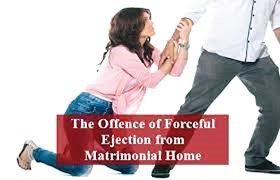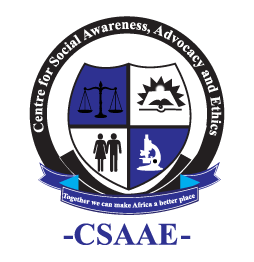In Nigeria, the issue of forceful ejection of spouses from their matrimonial homes has been a prevalent form of domestic violence, often causing significant harm and distress to victims. However, there is a glimmer of hope with the enactment of the Violence Against Persons (Prohibition) Act 2015, which addresses this very concern and imposes strict penalties on perpetrators.


Section 9 of the VAAP Act 2015 explicitly outlines the offence of forcefully evicting a spouse from their home or denying them access and prescribes corresponding punishments. Subsection (1) states that a person who forcefully evicts their spouse or denies them access commits a criminal offense. Upon conviction, the perpetrator may face a term of imprisonment not exceeding 2 years, a fine not exceeding N300,000.00, or both. This provision underscores the seriousness with which the law regards the violation of a spouse’s right to their matrimonial home.
Furthermore, subsection (2) extends liability to individuals who attempt to commit the offence described in subsection (1). Such individuals, upon conviction, may face imprisonment for up to 1 year, a fine not exceeding N200,000.00, or both. This provision reflects the legislative intent to deter not only completed acts of forceful ejection but also any attempts thereof.
Subsections (3) and (4) of Section 9 broaden the scope of liability to encompass individuals who incite, aid, abet, counsel, receive, or assist in the commission of the offense. These provisions highlight the interconnected nature of criminal conduct and emphasizes the culpability of those who enable or facilitate such acts. Such individuals, upon conviction, may face imprisonment for up to 1 year, a fine not exceeding N200,000.00, or both.
These provisions underscore the gravity of forceful ejection from the matrimonial home and the legal consequences awaiting perpetrators. The law aims to protect the rights and dignity of spouses, ensuring their safety and well-being within the confines of their homes.

The enforcement of this law is crucial in combating domestic violence and promoting a society where individuals feel safe and secure in their homes. It sends a clear message that such behaviour will not be tolerated and perpetrators will be held accountable for their actions. Moreover, the existence of legal remedies provides recourse for victims of forceful ejection. It empowers them to seek justice and redress for the harm inflicted upon them, thereby breaking the cycle of abuse and promoting a culture of respect and equality in relationships.
However, despite the existence of robust legislation, challenges remain in effectively implementing and enforcing these laws. There is a need for heightened awareness and education among law enforcement agencies and the general public to ensure that victims receive the support they require and perpetrators are swiftly brought to justice.
In conclusion, the prevalence of forceful ejection of spouses from their homes in Nigeria is a serious concern that requires concerted efforts from all stakeholders to address effectively. The provisions outlined in the Violence Against Persons (Prohibition) Act 2015 serve as a beacon of hope for victims, offering them legal protection and recourse against this offence.


